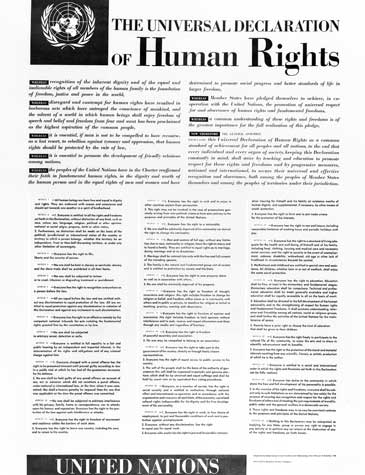The Nuremberg CodeNuremberg is a city in Germany where trials of Nazi war criminals were held at the end of the Second World War. Among the criminals prosecuted were scientists and researchers responsible for experimentation atrocities on prisoners. They claimed at their trials that they were just following the orders and guidelines of their government. The Nuremberg Code is a set of ethical principles for human experimentation research created in reaction to this monstrous lack of morality.
The first directive of the Nuremberg Code states "The voluntary consent of the human subject is absolutely essential." This means that the person involved should have legal capacity to give consent; should be so situated as to be able to exercise free power of choice, without the intervention of any element of force, fraud, deceit, duress, overreaching, or other ulterior form of constraint or coercion; and should have sufficient knowledge and comprehension of the elements of the subject matter involved as to enable him to make an understanding and enlightened decision. As discussed above, this is not codified in federal law. Federal DirectivesThe United States Health and Human Services (HHS) website cites the Nuremberg Code as directvies for human research. But these directives are not codified, meaning they are not federal law. Some states, recognizing the need for formal law governing experimenation, have codified it. One such state is California (see State Codes)
The 21st Century Cures ActHuman Rights
Edit this text and tell your site visitors who you are. To edit, simply click directly on the text and add your own words. Use this text to go into more detail about your company. Make sure to include information about how your company came to be. A strong “About” page helps establish credibility and professionalism and lets the visitor know more about you.
Nuremberg Code: Directives for Human Experimentation
ORI Introduction to RCR: Chapter 3. The Protection of Human Subject These directive are on the United States Health and Human Services (HHS) website but it is not codified meaning it is not federal law. But some states - recognizing exactly that - have codified it into law. One such state is California (see below and also State Laws)
Human Experimentation State Code
Because the Nuremberg Code is not codified into federal law, the State of California has codified it into state law and it is unlikely the federal government would be successful in challenging this state law conflicting with federal law using the Supremacy Clause - because the Nuremberg Code is a federal directive. California Code: Health and Safety Code: Chapter 1.3. Human Experimentation - Health and Safety Code Section 24170-24176 24170 Protection of Human Subjects in Medical Experimentation Act. 24171 The Legislature further finds and declares that: (a) The Nuremberg Code of Ethics in Medical Research was developed after the trial of Nazi war criminals for unethical use of persons in medical experiments; subsequently, the Declaration of Helsinki additionally established recommendations guiding doctors in experimentation involving human subjects. (b) Neither the Nuremberg Code nor the Declaration of Helsinki are codified under law and are, therefore, unenforceable. (c) It is necessary that medical experimentation be done in such a way as to protect the rights of the human subjects involved. (d) There is, and will continue to be, a growing need for protection for citizens of the state from unauthorized, needless, hazardous, or negligently performed medical experiments on human beings. It is, therefore, the intent of the Legislature, in the enacting of this chapter, to provide minimum statutory protection for the citizens of this state with regard to human experimentation and to provide penalties for those who violate such provisions. 24172. As used in the chapter, "experimental subject's bill of rights," means a list of the rights of a subject in a medical experiment, written in a language in which the subject is fluent. Except as otherwise provided in Section 24175, this list shall include, but not be limited to the subject's right to: (a) Be informed of the nature and purpose of the experiment. 24174. As used in this chapter, "medical experiment" means: (a) The severance or penetration or damaging of tissues of a human subject or the use of a drug or device, as defined in Section 109920 or 109925, or electromagnetic radiation. 24176. (a) Any person who is primarily responsible for conduct of a medical experiment and who negligently allows the experiment to be conducted without a subject's informed consent, as provided in this chapter, shall be liable to the subject in an amount not to exceed ten thousand dollars ($10,000), as determined by the court. |
Disclaimer: Targeted America is not a law firm. The information contained in this website is provided for informational purposes only and should not be construed as legal advice on any matter.
|


